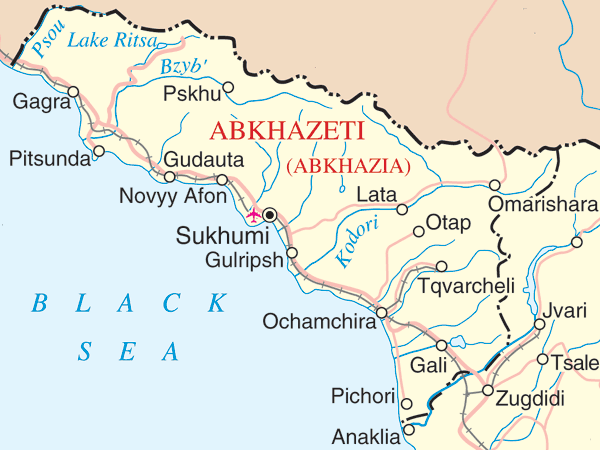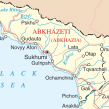
EUROAPPEASEMENT: THE EU’S ANSWER TO RUSSIA’S ASSAULT ON GEORGIA
Publication: Eurasia Daily Monitor Volume: 5 Issue: 106
By:

The European Union’s External Relations Council (known as GAERC, the EU’s policy making body at the level of ministers of foreign affairs) discussed Russia’s assault on Georgia in its latest monthly meeting in Brussels. Held on May 26 and 27, five days before Russia’s unlawful move of railway troops into Abkhazia (in effect, a military seizure of the Georgia-owned railroad), the GAERC meeting offered a textbook case of appeasement, thereby encouraging the aggressor.
The EU’s new member countries, along with Sweden and some others, proposed to diplomatically express EU disapproval of Russia’s conduct on Georgia. Those proposals were, however, blocked by other countries, which prevailed in wording GAERC’s concluding document. GAERC meetings’ conclusions serve as policy guidelines for the EU’s external policy.
GAERC’s agenda shied away from the fundamental issues of territorial occupation through “peacekeeping” and de facto annexation. The meeting’s agenda focused on Russia’s latest moves against Georgia, that is, the aggravating circumstances since April. These include the Russian presidential decree on direct official relations with the secessionist authorities; unlawful deployment of additional Russian troops with heavy armaments; and shooting down of Georgian unmanned aerial reconnaissance vehicles (UAVs) by the Russian military in internationally recognized Georgian air space.
Even on these issues, GAERC adopted an agnostic position, failing even to name them in its conclusions (after discussing them in the meeting) and confining the conclusions to generalities long overtaken by developments on the ground. In the key section, the conclusions express “serious concern about the recent series of events that have raised tension between Georgia and the Russian Federation … underline that it is essential now to reduce the risk of further escalation and take steps toward normalization of relations … emphasize that all parties should tone down public rhetoric and abstain from provocations.”
Such conclusions seem to equate the aggressor and its target, with no attempt at distinguishing between them politically or morally. The euphemism “events,” in lieu of naming the use and threat of military force, signaled tolerance of such “events,” encouraging Moscow to calculate that the EU would similarly tolerate the deployment of Russian railway troops five days later. Moscow’s timing of that move, on the day when 15 EU ambassadors were visiting Sokhumi, gave the measure of Russian disrespect of appeasement.
While Russia escalates the pressure unilaterally with every move against Georgia and the Georgian side only responds diplomatically, the EU nevertheless urges both sides equally to de-escalate and refrain from provocations. Apparently, the EU is concerned about avoiding a Georgian response on the ground to Russia’s moves. Some EU policy makers, however, do not seem to realize that their equidistant posturing deprives them of credibility with both sides. Moscow can conclude that Abkhazia is fair game and that the EU might even abandon Georgia to its fate if Georgia dares to defend itself from attack. For its part, Georgia can conclude that it has nothing to lose if the EU stubbornly refuses to acknowledge Georgia’s restraint in the face of such provocation.
The appeal to Russia-Georgia “normalization,” despite Russia’s overt annexation of Abkhazia, seems to suggest that the two processes can be separated from each other. Georgia, however, believes that the ongoing annexation rules out normalization of Russia’s relations with the “rest of Georgia.” Furthermore, Russia’s concept of “normalization” includes limitations on Georgia’s sovereignty, e.g., Georgia renouncing its NATO aspirations. Thus, the EU’s vague appeal to normalization sounds like a wish to delay or even avoid grappling with the terms of the problem.
On some issues, GAERC’s concluding document is weaker even than recent UN documents. For example, GAERC ignored the UNOMIG (United Nations Observer Mission in Georgia ) investigation’s clear-cut findings that a Russian air force plane shot down a Georgian UAV in internationally recognized Georgian air space on April 20. In order to avoid criticizing Russia, GAERC postponed discussion of the matter sine die. Although the UN General Assembly had recently ascertained in a resolution that mass-scale ethnic cleansing had been perpetrated in Abkhazia and endorsed the expellees’ right to return and recover their property, GAERC ignored this issue altogether. To be sure, the General Assembly had passed that resolution by the narrowest of margins, with some EU countries voting in favor (as did the United States), while others abstained or declined to vote.
Having rushed to grant travel visa facilitation to Russia’s citizens while denying it to Georgian citizens, the EU has unwittingly rewarded Russia’s illegal conferral of its citizenship to the residents of Abkhazia. The EU might have offset the effects of that poorly thought-out move by granting visa facilitation to citizens of Georgia. The GAERC conclusions, however, merely take note of Georgia’s wish in that regard and envisage continuing discussions.
The GAERC’s conclusions are not uniformly negative or indifferent toward Georgia. The document welcomes Georgian President Mikheil Saakashvili’s recent offer of autonomy to Abkhazia, as well as the recent attempt by Tbilisi to re-launch direct talks with Sokhumi authorities.
Routine expressions of support for Georgia’s territorial integrity and inviolability of its borders, however, sound merely like incantations, unless accompanied by efforts to transform Russia’s “peacekeeping” operation and moves to stop Moscow’s de facto annexation of Abkhazia. The EU’s deepening appeasement of Russia and its failure to acknowledge Georgia’s restraint in the face of aggression may trigger the explosion that the EU seeks to avoid through its tactics (Council of the European Union, “Council Conclusions on Georgia,” External Relations Council Meeting, Brussels, May 26-27).




